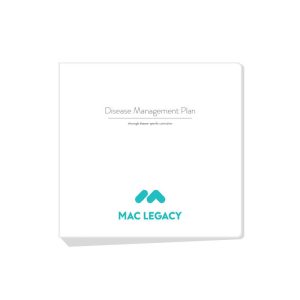In 2019, 37.3 million Americans had diabetes and another 96 million have prediabetes. Of the 37 million Americans, 28.7 million were diagnosed and 8.5 million were undiagnosed. The American Diabetes Association is calling it a nationwide epidemic. World Diabetes Day is celebrated each year on November 14th to bring awareness to the disease and empower…
In 2019, 37.3 million Americans had diabetes and another 96 million have prediabetes. Of the 37 million Americans, 28.7 million were diagnosed and 8.5 million were undiagnosed. The American Diabetes Association is calling it a nationwide epidemic. World Diabetes Day is celebrated each year on November 14th to bring awareness to the disease and empower people who have been diagnosed to be educated about their disease and to live well.
Patients with diabetes must make lifestyle changes to manage their disease, including monitoring blood sugar, managing medications, making healthy meal choices, and getting regular exercise. Diabetes Management Plans are comprehensive home health services designed to support individuals living with diabetes in the comfort of their own homes. These programs are specifically tailored to address the diverse needs of diabetic patients, providing a holistic approach to care, education, and self-management. This program offers the tools for home health agency staff to assist a patient to navigate living with diabetes.
Provide a Roadmap for Care Delivery:
A Diabetes Disease Management Program provides a roadmap to build a program from the ground up or enhance a current program. The program can include evidence-based resources for training staff in assessment and building a comprehensive plan of care, evaluate staff competency, and provide intervention strategies and specific education to diabetic patients.
Enhanced Staff Training and Coordination:
A Diabetes Disease Management Program provides ongoing education and professional development opportunities for home health agency staff. By investing in staff training and development, agencies can enhance the skills and competencies of their staff. They will possess focused expertise to manage the complex disease of diabetes, implement evidence-based interventions, and provide specialized care. This investment can lead toward overall retention of staff who receive advanced training in caring for patients with diabetes.
Improved Outcomes:
Diabetes Disease Management Programs are designed to assist an agency in achieving improved outcomes. These include improved diabetes control, reduced complications, and enhanced overall patient health. Research shows that programs with diabetes self-management education and support as a component improve A1C, reduction in the onset and/or worsening of diabetes-related complications, and quality of life. The specialty program that includes this unique education component will give patients and their caregivers access to expertise and resources, setting the stage to achieve these outcomes.
Reduced Hospital Readmissions:
Diabetes Disease Management Programs aim to prevent hospital readmissions by providing continuous care and early intervention when needed. With specialized care from the interdisciplinary team, patients can remain in their home with fewer complications due to the targeted interventions for managing diabetes. These programs can also be more cost-effective than extended hospital stays or frequent clinic visits.
Enhanced Quality of Life:
By receiving care in the familiar and comfortable environment of their homes, patients experience less disruption to their daily lives and routines. A Diabetes Disease Management Program can improve healthy coping and decrease diabetes-related stress. They also promote lifestyle behaviors including healthy meal planning and engagement in physical activity which improve overall health and quality of life.
Empowerment:
Patients and their families gain the knowledge and skills needed to manage diabetes effectively, promoting self-sufficiency and independence. The concept of self-management empowers the patient to own their own health and manage their diabetes through specialized patient education. Utilizing this evidenced-based tool in a specialty program, agency staff provide self-management support to empower the patient to implement changes and strategies to live well with their disease.
MAC Legacy and CHAP have collaborated to bring agencies a verified Diabetes Disease Management Program. This plan can serve as a catalyst for home health agencies to improve the quality of their services. Our Diabetes Disease Management Program has what an agency needs to begin or enhance an existing program. This can improve patient outcomes, enhance staff competency, highlight specialty staff, and create a competitive edge.
Conclusion: By implementing a Diabetes Disease Management Program and adopting evidence-based practices, implementing patient-centered approaches, and emphasizing interdisciplinary collaboration, agencies can differentiate themselves in a crowded marketplace.
Patients being cared for by staff with the expertise in specialty care for diabetes can equip patients to live with diabetes and remain in their home thriving and living life to the fullest.
-
 Diabetes Disease Management Plan$400.00
Diabetes Disease Management Plan$400.00
